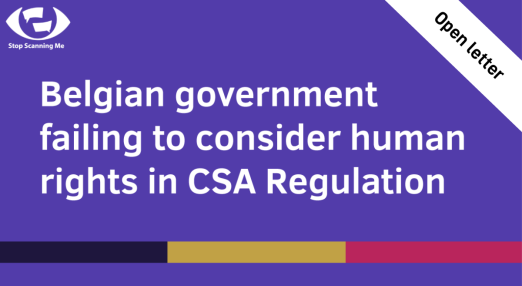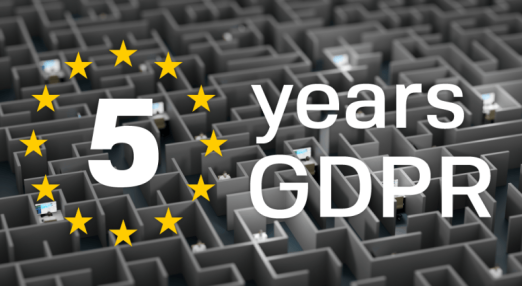The Belgian government is failing to consider human rights in CSA Regulation
Despite the clear warnings, Belgium has taken a position calling on the EU to adopt the CSA regulation as quickly as possible, dismissing the technical problems, and without addressing the serious legal concerns that have been raised.
Filter resources
-

The Belgian government is failing to consider human rights in CSA Regulation
Despite the clear warnings, Belgium has taken a position calling on the EU to adopt the CSA regulation as quickly as possible, dismissing the technical problems, and without addressing the serious legal concerns that have been raised.
Read more
-

Open letter: e-Evidence package lacks appropriate safeguards, EU Parliament must reject it
Civil society, doctors, lawyers and journalists associations and internet service providers are calling on MEPs to reject the so-called “e-Evidence” package during the plenary vote on June 13 because the proposed system of cross-border access to data in criminal matters would severely undermine fundamental rights.
Read more
-

Sex, religion and race are advertising taboos, except for power-hungry politicians
As the GDPR turns five, certain EU lawmakers want to rip out some of its protections, so they can use our deeply personal information to tailor political ads and tip political elections and campaigns in their favour.
Read more
-

5 years of the GDPR: National authorities let down European legislator
On 25 May 2018, the General Data Protection Regulation (GDPR) came into force, promising to be the strongest set of data protection rules to enhance our privacy. While the contents of EU data protection rules stayed largely the same, the alleged big change was the GDPR's strict enforcement. 5 years later, national authorities and courts largely leave the European legislator in the lurch – despite a budget of more than €330 million in 2022.
Read more
-

Romania: CSA Regulation will make journalistic investigations of child abuse impossible
The back door to people’s private communications that only the authorities can access is a mythical creature that lives in the imagination of those dismissing the consequences of malware, spyware attacks and software exploits. Experts and affected people have spoken up about the dangers of creating a back door to secure communication even if it is to be accessed only by police and security services. The Child Sexual Abuse (CSA) Regulation has revived the age-old debate.
Read more
-

Government bans TikTok (sort of), Facebook has a bad day in court, and civil society organisations mobilise against Big Tech
Read through the most interesting developments at the intersection of human rights and technology from the Netherlands. This is the third update in this series.
Read more
-

Missing: people’s rights in the EU Digital Decade
In June 2023, the European Union (EU) will adopt its first report on the state of the ‘Digital Decade’ – a plan launched in 2022 with digitalisation targets for business, public services and people’s digital skills. The Digital Decade reads more like a business plan than a policy programme.
Read more
-

Position Paper: The Cyber Resilience Act, how to make Europe more digitally resilient?
If the EU’s new Cyber Resilience Act truly wants to improve the EU’s digital security landscape, it must do more than introduce an industry certification scheme: true IT security requires long-term software support, transparent and safe vulnerability handling and disclosure, and an acknowledgment of the essential role of free and open software communities in Europe’s digitisation.
Read more
-

New Romanian cybersecurity law in force despite heavy criticism
The Constitutional Court of Romania declared the new cybersecurity law constitutional despite criticism from civil society about the repercussions for investigative journalists,security companies, and for regular citizens.
Read more
-

EU plan for international border data-sharing system “should not proceed”
The European Commission’s plan for a “security-related information sharing system between frontline officers in the EU and key partner countries” should be scrapped, says a paper signed by 10 organisations, including Statewatch, who warn that it may aid political repression and underpin human rights violations.
Read more
-

EU plans allow Big Tech to exploit your medical records, without permission
The EHDS would make physicians and other medical professionals complicit in the forced commercialisation and monetisation of every aspect of your health without ever asking for your consent. It would destroy the Hippocratic oath of confidentiality by which every medical professional is supposed to be bound.
Read more
-

Police cameras won Big Brother Awards in Czechia
EDRi member in the Czech Republic Iuridicum Remedium handed out its anti-prizes for the eighteenth time in March 2023. 2022 was exceptional: one of the "awardees" came for the award, and the others had to express themselves under the pressure from the media.
Read more
